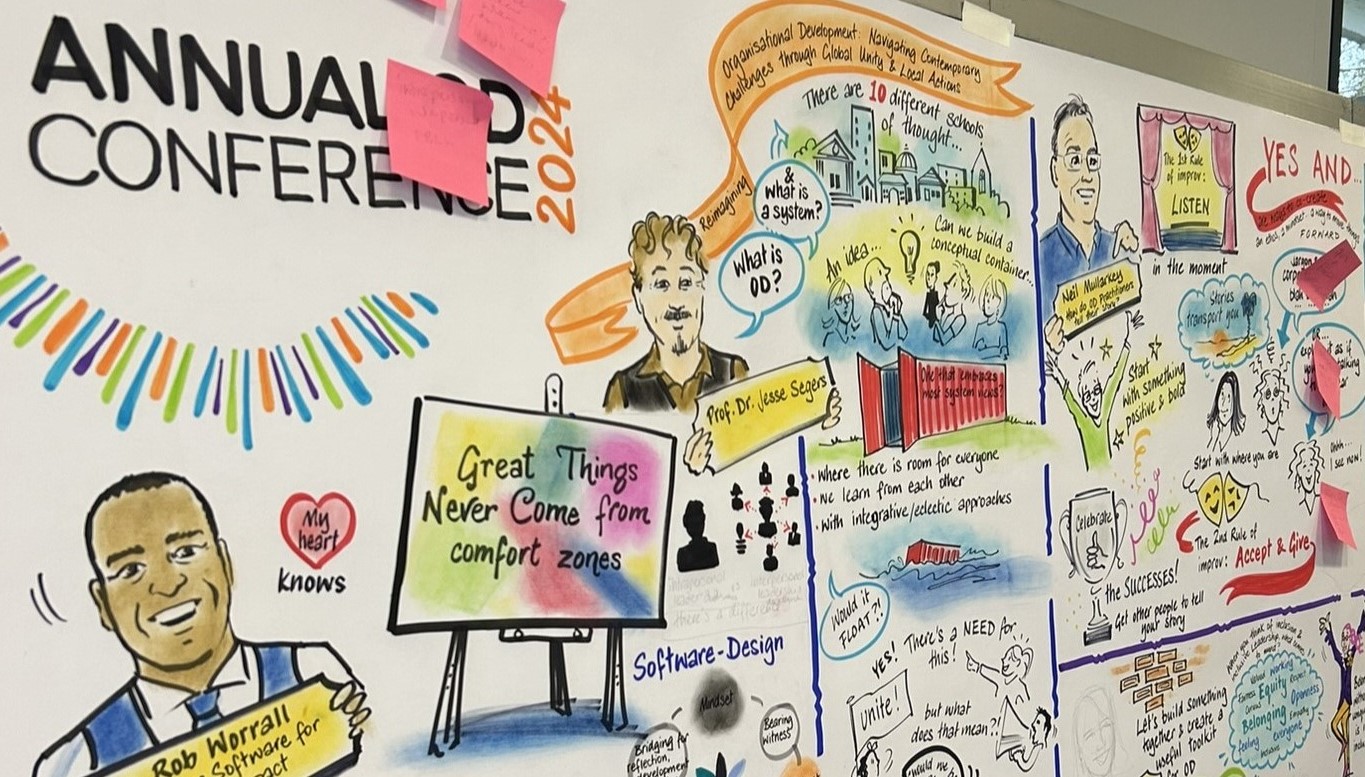The work of an Organisation Design (OD) practitioner involves the use of planned interventions to improve organisational effectiveness. OD’s ideas and practices mainly derive from the disciplines of psychology, sociology and business theory but OD practitioners can also look elsewhere for inspiration – sport and politics for example. This month of winning and losing on the field and at the ballot box can teach us a lot about teamwork, leadership, competing and collaborating. In this blog, I want to focus on re-framing failure not as something to be avoided or hidden but as something to be accepted as an opportunity to change and to help shape improvements at work.
Little successes and failures are part of the process of continuous improvement, a constant state of training and refinement. Athletes review performance data, seek feedback and make incremental improvements. This iterative process is essential for reaching peak performance. OD practitioners can adopt a similar approach by using surveys, performance reviews and informal check-ins to gather feedback. A growth mindset helps individuals view challenges as opportunities to learn and grow and OD practitioners can support managers in offering continuous learning opportunities to keep skills sharp and relevant.
Lessons from sporting failures
Sports people often face setbacks, injuries and unexpected changes. Their ability to bounce back, adapt strategies and remain focused is key to their success. Mental toughness and resilience are cultivated through experience and intentional practice. To build a similar resilience within organisations, OD practitioners can provide resources and training on stress management as well as resilience-building techniques and implement programmes that support mental well-being.

In sports, great coaches are motivators, mentors and visionaries. They inspire their teams, especially in learning from failures. OD practitioners can enhance leadership within organisations by offering coaching and mentorship programme to develop leadership skills at all levels.
Pete Coffee, in a blog aimed at A-Level students last year, brought insights from his work in sport psychology and stressed the importance of examining the main cause of the perceived failure, focusing on what you can control to minimise experiencing that same cause of failure in the future; and seeking support from our social groups, especially those close to you or those you identify with.
These sentiments chime with the advice from Amy Edmondson, Harvard Business School Professor of Leadership. She goes further and suggests we should focus on failing intelligently. This means having a mindset that is open to learning from mistakes rather than simply trying to hide them (a very natural reaction to failure). This is much easier if we are supported when we fail. The penalty shoot-out is a high-stakes event in football tournaments today. In the recent Euro 2024 event, when a player missed a penalty, it was conspicuous how his teammates were quick to console him. I wonder if we take the same approach when colleagues fail at work.
That said, Edmondson’s advice is to avoid repeating mistakes by doing your homework on previous attempts and to experiment at as small a scale as possible to minimise risks. We see this reflected in the way today’s footballers approach a penalty shootout. Now with the help of sports psychology, we see modern players using a range of different techniques to maximise the chance of scoring after reflecting and deciding that their previous approaches were not as effective.
Edmondson rounds up her advice by emphasising the importance of clear goals that your attempts are directed towards – easy in sport but not so clear-cut in the world of work. So, here are some questions for you to consider at work:
- How does your organisation define success when it comes to managing people?
- How does your organisation respond to failure?
- Are you supportive when individuals and/or teams fail?
- And are you brave enough to explore the reasons for the failure – without defaulting to blaming and shaming?
Is failure a building block for success?
The great Michael Jordan famously said, “Twenty-six times, I’ve been trusted to take the game-winning shot and missed. I’ve failed over and over and over again in my life. And that is why I succeed.” Failure is a stepping stone, a teaching moment and an opportunity to develop further towards a desired success.
As philosopher Alan Watts put it, “You never know what will be the consequence of the misfortune; or, you never know what will be the consequences of good fortune.” This teaches us that events in life are often neither purely good nor purely bad. The consequences of success and failure may unfold in unexpected ways and OD practitioners need to be ready to use them all. So, perhaps there’s one final piece of advice when it comes to successes and failure: that there’s wisdom in accepting life’s vicissitudes with equanimity.





